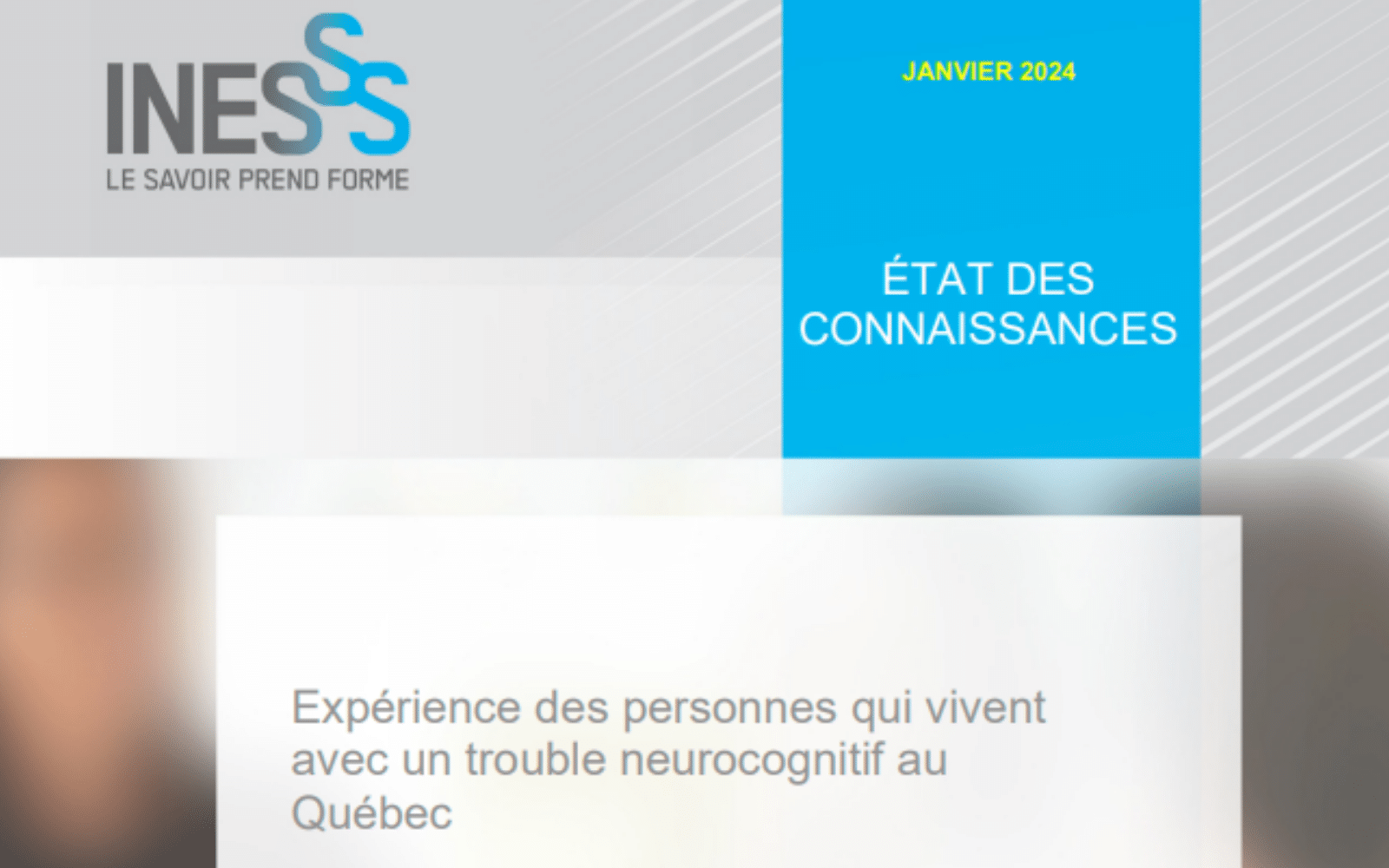This report (45 pages, in French) presents the results of a research initiative aimed at gaining a better understanding of the needs and expectations in terms of care and services people living with a neurocognitive disorder, more specifically Alzheimer’s disease, and their caregivers. It sheds light on several aspects of their experience, including their relationship with the disease, family relationships,access to health care and services, and support received from the health and social services network. The findings are based on a rapid review of the scientific and grey literature and on a group discussion with a non-representative sample of two people living with Alzheimer’s disease and four caregivers.
Expérience des personnes qui vivent avec un trouble neurocognitif au Québec : État des connaissances
This report (45 pages, in French) presents the results of a research initiative aimed at gaining a better understanding of the needs and expectations in terms of care and services of people living with Alzheimer's disease and their caregivers.
Year: 2024
Languages: French
Format: Document (article, report, guide, etc.)
Dimension(s) of caregiving:



Need help? →
CALL 811 (Info-Santé/Info-Social). If you need support or have concerns or questions about your health or that of a family member or friend, call 811 to speak to a nurse or psychosocial worker. Bilingual and available 24 hours a day, 7 days a week, it’s free and confidential.
To speak to a caregiver counselor about a difficult situation, ask questions or get a referral, call l’Appui’s Caregiver Support Helpline.
Bilingual; open daily from 8 a.m. to 8 p.m.
Bilingual; open daily from 8 a.m. to 8 p.m.
To find community resources offering caregiving information and support near you, consult l’Appui’s Resource Directory or Proche aidance Québec's list of member organizations (in French only).

